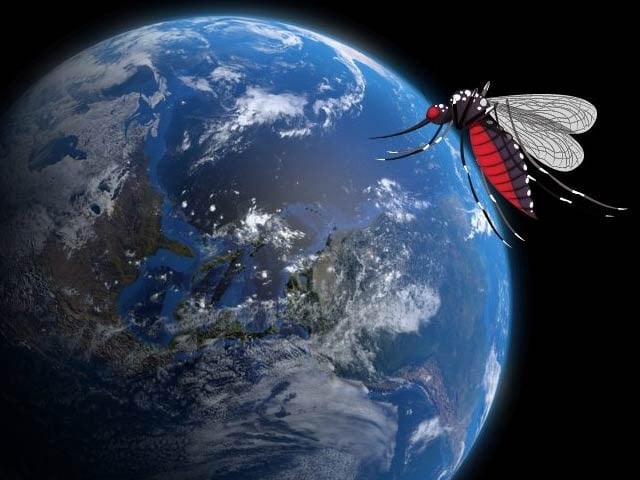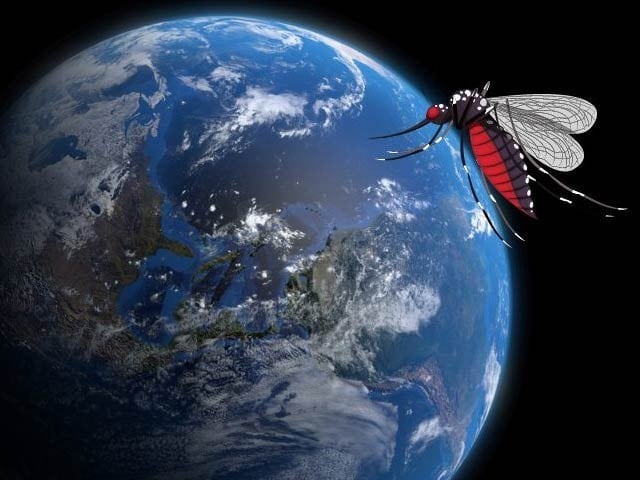
In 120 years, malaria-carrying mosquitoes have spread hundreds of kilometers beyond their range. Photo: File
Washington: Malaria is called a disease of the poor because its epicenter is still in Africa. However, scientists warn that as global warming increases, the range of malaria-causing mosquitoes is increasing by about 5 km per year.
In this context, the most important thing has come out is that due to climate change, the deadly disease of Africa can now spread to other regions, which is evident from the data of the last century.
Colin Carlson, a biologist at Georgetown University, and his colleagues took the last 120 years of African data to note the spread or migration of 22 species of Anopheles mosquitoes found in Africa from 1898 to 2016. During this period, the temperature of the planet has increased by an average of 1.2 degrees centigrade, after which mosquitoes have invaded other areas.
The bottom line is that the malaria-carrying Anopheles mosquito has moved southward about three miles, or 5 kilometers, each year. But the second important thing here is that mosquitoes are now moving towards the height above the sea level and are reaching six and a half meters higher every year.
A survey by scientists shows that Anopheles mosquitoes have moved 500 km closer to the South Pole than in the 20th century and have reached an altitude of 700 meters upwards. It should be noted that this prediction has been made many times before and now it has been confirmed by data analysis.
According to scientists, mosquitoes are very fast in flying and can reach hundreds of kilometers in a single night on the wind direction. Another thing is that climate change is not only increasing their spread but also increasing the duration of their disease spread. If this trend continues, malaria may spread to countries other than Africa where the disease is rare.
(function(d, s, id){
var js, fjs = d.getElementsByTagName(s)[0];
if (d.getElementById(id)) {return;}
js = d.createElement(s); js.id = id;
js.src = “//connect.facebook.net/en_US/sdk.js#xfbml=1&version=v2.3&appId=770767426360150”;
fjs.parentNode.insertBefore(js, fjs);
}(document, ‘script’, ‘facebook-jssdk’));
(function(d, s, id) {
var js, fjs = d.getElementsByTagName(s)[0];
if (d.getElementById(id)) return;
js = d.createElement(s); js.id = id;
js.src = “//connect.facebook.net/en_GB/sdk.js#xfbml=1&version=v2.7”;
fjs.parentNode.insertBefore(js, fjs);
}(document, ‘script’, ‘facebook-jssdk’));



